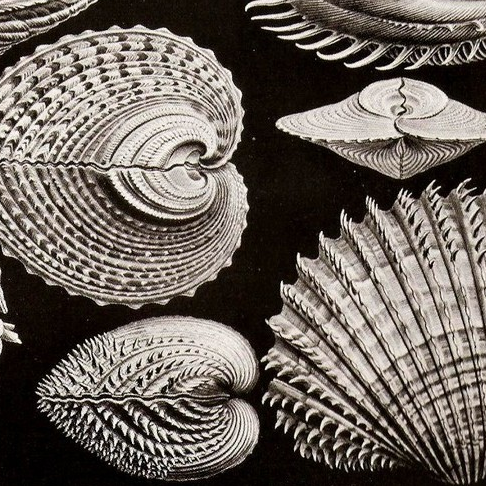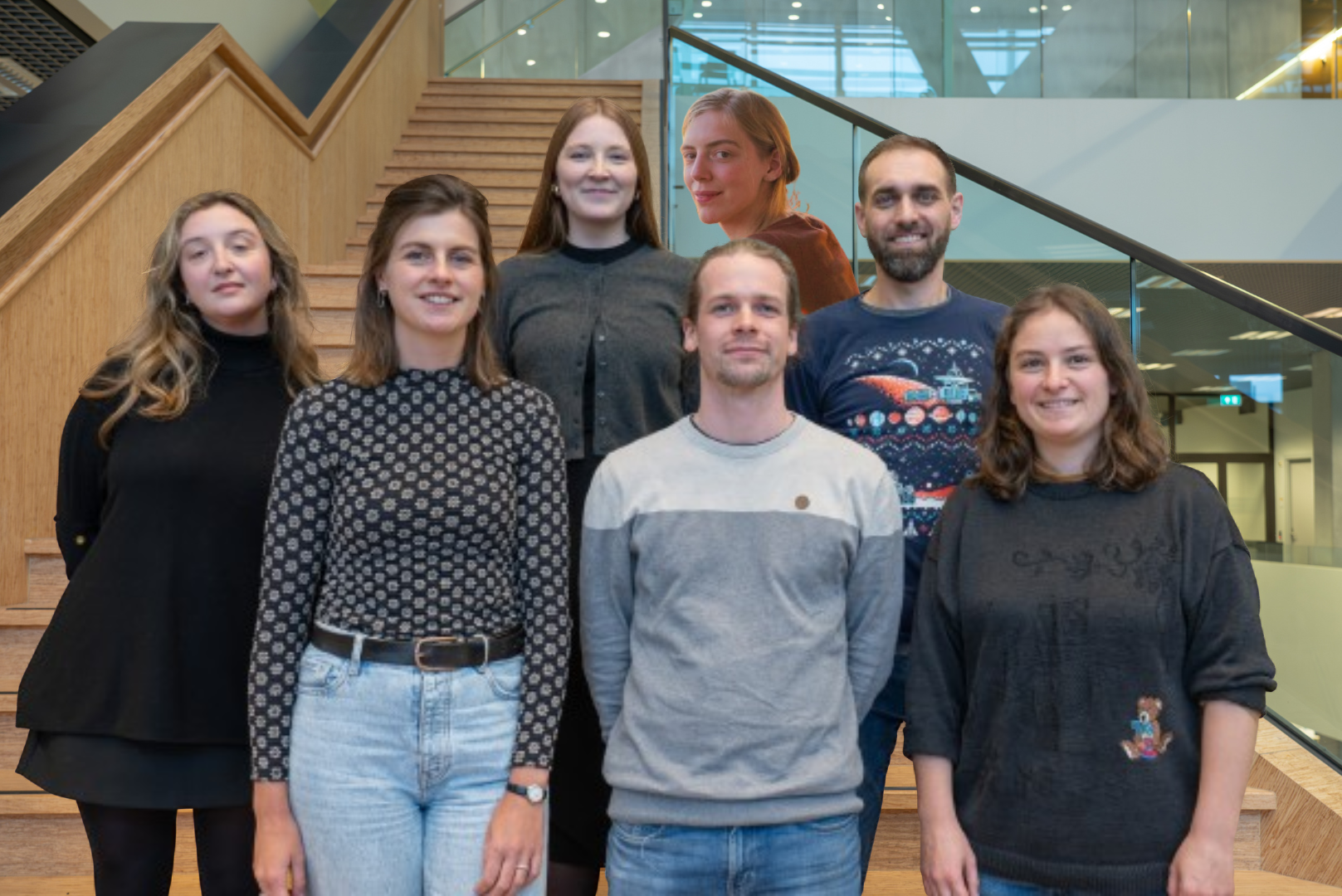This post officially marks one full academic year since our team took over the editorship for Shells & Pebbles. We hope that you’ve enjoyed reading along.
As editors, we lurk behind the scenes, but we wanted the chance to connect with you, our readers, and emerge a bit from the shadows. So, we decided to do something wholly unoriginal – staff picks!
We each were tasked to come up with something we found noteworthy in the past year that would be of interest to our historically-minded readers. Inevitably, podcast and book suggestions topped the list, but so did… cloud gazing. Have a gander and add a few to your ever-growing lists of worthy information to consume.
This post will also be the last before we sign off for the summer vacation. We will return in September to kick off the new academic year with more interesting finds on the shores of the history of science and the humanities. Cheers to a happy and healthy summer!
Powerful female stories of love, loss, grief and parenthood laid the basis for Motherhood Lost by Linda Layne, a feminist anthropological account of pregnancy loss in the United States. This book is thought provoking, personal and breaks through the taboo on pregnancy loss. Layne offers a hand to women who experience miscarriage, hoping that this book, in her words, “will help others who have been confused by the experience of pregnancy loss (whether their own or that of their associates) by illuminating some of the sources of that confusion and expanding the repertoire of options for understanding and dealing with such misfortunes.”
A few years ago I wrote a paper on the epistemology of visual representations and international cooperation in the 1890 Cloud Atlas (Wolken-Atlas) by Hildebrandsson, Köppen and Neumayer. Ever since, I’ve been fascinated by clouds and the ways in which they bring people together. During that research, I also came across the Cloud Appreciation Society. This community does exactly what it says on the tin: appreciate clouds, collectively. This summer, why not make your own cloud atlas? Take a moment every day and snap one picture of a cloud. By the end of the month/summer holiday/…, you’ll have a collection of skies telling the story of the summer.
Recommending the work of Florence Nightingale might seem strange – few historians of science will be unfamiliar with her famous coxcomb diagram. But many might not know of her other diagrams, let alone the wider context of the Mortality of the British Army (1858). Luckily there is an impressive book by RJ Andrews! In Florence Nightingale, Morality and Health Diagrams, Andrews did not just create a facsimile, nor is it your typical academic publication. It contains both a reprint of Nightingale’s original publication and extensive contextualising essays. The well-crafted narrative and beautiful printing reveal that Andrews cares deeply about sharing this story. Definitely worth checking out!
It might seem overwhelming to be recommended another podcast, but this one must be heard by historophiles far and wide. The history podcast Throughline is bar none the best of its kind. Hosts Ramtin Arablouei and Rund Abdelfatah combine top notch audio production with rigorous research in a manner that shows academic and popular history can exist symbiotically. The subject matter is diverse, ranging from the anti-capitalist origins of Monopoly to the queer roots of electronic dance music. While the show often focuses upon American contexts, there is a plethora of global stories relevant to nearly every audience. Listening to Throughline will teach you not only the history, but how to tell the history.
Benjamin Labatut is a Chilean author who writes history-of-science fiction (not history of science fiction) or fictionalised history of science. His latest book, The Maniac, is a collection of short stories, one more thrilling than the other. Each one is centred around a scientific figure or scientific development from the physical or mathematical sciences – in this case Paul Ehrenfest, John von Neumann, and the development of the artificial intelligence AlphaGo, respectively. With his clear, sometimes poetic language, and incredible pace, Labatut explores the porous boundaries between genius and madness, human and inhuman, comprehensible and incomprehensible as they exist in scientific thought. The book is worth reading for the awful (as in awe-full or awe-inspiring) picture of the power of thought it manages to paint alone. But the fact that it manages to do so with actual historical developments is an added bonus (beware: some narrative liberties were taken!). History of science has never been so good.
Also BBC’s In our time: History, a history radio show (available as podcast) hosted by Melvyn Bragg. Since 2010, no less, Melvyn has been discussing all sorts of historical developments, figures, and topics about twice a month. Always conducted in a round-table format with two or three experts, each episode presents a different issue with as much nuance and depth as you can probably get from a 45-minute conversation. The scholarly atmosphere, coupled with Melvyn’s fantastic British accent, takes me right back to my student days in York. Listening to the show, I always picture people in tweed jackets with elbow patches, the ancient brick buildings of a British campus, and find myself longing for a cup of tea. The only thing missing might be a fire crackling in the background.
If I think back to all the impressions that have passed through my mind in the previous year, one line of argumentation stands out as particularly provocative: the underlying cause of divergent national development is not geological, environmental, or religious but institutional. In their 2012 treatise “Why Nations Fail: The Origins of Power, Prosperity and Poverty“, Daron Acemoglu and James A Robinson put forth this claim. As they construct their arguments the authors move between fine-grained and course-grained approaches to historical analysis while interweaving narrative reflection and economic modeling to problematize the received views of national development in the context of democratic liberties and economic engagement. While the lines of argumentation can at times suffer from a certain lack of depth, the historically inclined reader will be as interested in the content of the argument as the form of the argument itself.
Dear readers of our pebbly blog, my suggestion for you today is to give the Ottoman History Podcast a try. I am not a historian by training, so I often notice that I lack knowledge of certain historical topics or events. The Ottoman Empire, for example, remained a mystery for me until I found this podcast. The many episodes cover a great variety of topics, ranging from the natural sciences in early modern Morocco to discussions of mass media in modern-day Egypt. For me, what makes this podcast stand out is especially the in-depth discussions of the sources the makers of the podcast present. This provides the podcast with nuance and also shows the care and experience of the various scholars who are involved with its making. If you are looking for more information on any topic related to the Ottoman Empire, or simply looking for a history podcast to listen to on the train, I think this podcast might be your cup of tea.








